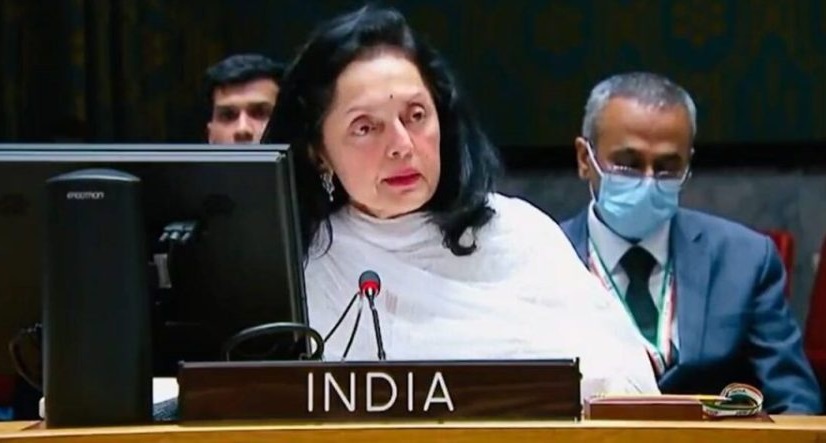
United Nations: It is the best time to be a woman in India today, the country’s UN envoy Ruchira Kamboj has said, emphasising that the government was fully empowering women at all levels.
The Permanent Mission of India to the United Nations, in partnership with UN Women India, organised a high-level panel discussion this week on ‘Leveraging Public-Private Commitment for Women’s Greater Access to Technology and Education’ at the United Nations Headquarters on the margins of the ongoing 67th session of the Commission on Status of Women. ‘In India, there has been enormous, enormous growth in the past eight-nine years particularly and today, I think it is perhaps the best time to be a woman in India. I mean that very sincerely’, India’s Permanent Representative to the UN Ambassador Kamboj said.
In her remarks, Kamboj stressed that in India ‘we recognise the transformational capacity of technology to provide impetus to women’s empowerment and sustainable development’. ‘This is a fantastic time to be a woman and the government is fully empowering you at all levels. The Prime Minister has emphasised upon a model of women-led growth and development and it is very much a reality’, Kamboj said. She highlighted that the Government of India has taken numerous citizen-centric digital initiatives with a greater focus to enable access for women to finance, credit, technology and employment. These initiatives have focused on providing immediate assistance to women in distress, preventing violence against women, and promoting women’s full and equal participation in every sphere of society, she said.
Kamboj spoke on two major initiatives — the Digital India programme and the Jan Dhan-Aadhaar-Mobile (JAM) trinity — that have shown the capacity of technology to provide impetus to women’s empowerment and sustainable development. She said that during the pandemic, these initiatives had facilitated direct benefit transfer to nearly 200 million women. Assistant Secretary-General and Deputy Executive Director of UN Women Anita Bhatia said that since 2017, successive Commissions on the Status of Women have recognized the important and fundamental role that digitalization plays in closing the gender digital divide.
Highlighting that women have less access than men and boys to technology, Bhatia said ‘the non-negotiables have to be a recognition that digital rights are also human rights and that women have as much right to digital access as do men and boys’. She pointed to data, which she termed as ‘pretty shocking’ and according to which, globally men are 20 per cent more likely to be online than women, with this percentage as high as 52 in low-income countries as a group. ‘There also has to be a recognition of this from the point of view of opportunity, because not investing sufficiently in digitalization means that governments are actually leaving money on the table’, she said.
Bhatia added that in a post-pandemic world, where the fiscal space is constrained, ‘this is actually a fabulous opportunity to say how can we leapfrog our economies, how can we grow our economies quickly and how can we do so by leveraging both the power, creativity and innovation of women, but also the power of creativity and innovation that is inherent in digitalisation’. Bhatia also noted that the STEM (Science, Technology, Engineering and Mathematics) field is ‘uber-masculine’ and ‘we need to make it look less masculine and have more girls and boys involved in this’.
Apollo Hospitals Joint Managing Director Dr Sangita Reddy told the discussion that ‘in a single word, what we are all seeking today – we were striving for equity. We’re looking forward now to ‘Techquity’.’ Reddy said it is techquity ‘which will help us take the position that we’re looking forward to in the years to come’. With technology driving every aspect and field of life now, Reddy said from computing and automation to artificial intelligence, ‘the world is transforming. As we seek equity in this world, it is important for every woman to be digitally connected, digitally savvy’, Reddy said. The panel discussion was organised as a part of the ‘India Roundtables’ at the United Nations.
The roundtables, being organised to commemorate India@75, will showcase India’s achievements in various areas of development, including women empowerment, financial inclusion, social development, climate action and many more. The panel, moderated by Country Representative, UN Women India Susan Ferguson, included Senior Vice President and Chief Marketing and Communications Officer, LinkedIn Melissa Selcher and Senior Vice President & Human Resources Development Head – India & Americas, Nina Nair.

Post Your Comments